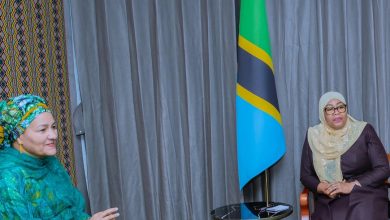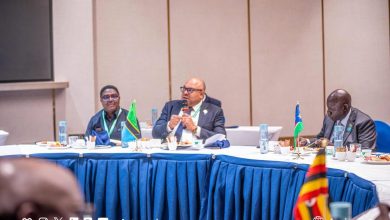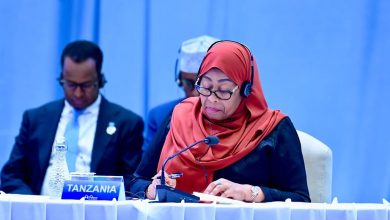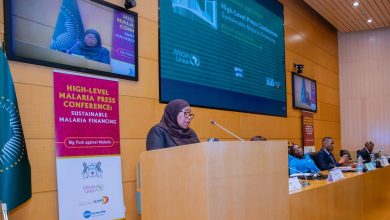WHAT’S INSIDE: KEY HIGHLIGHTS FROM CCM’S MANIFESTO

DAR ES SALAAM: IN its 2025-2030 Election Manifesto, the ruling party, Chama Cha Mapinduzi is targeting to build a modern, inclusive and competitive economy grounded in adding value to locally produced resources. Various sectors are listed to achieve this target.
Ensuring national debt remains sustainable
• CCM will undertake various measures, including ensuring that the national debt remains sustainable and that loans are used to implement productive development projects that stimulate economic growth.
Strengthening revenue collection
• The party will also strengthen revenue collection to reach 15.6 per cent of the national income, enhancing the government’s capacity to serve its citizens.
Agricultural sector
• CCM will continue to champion a transformation of the agricultural sector, making it modern, productive and competitive. The manifesto sets a target to grow the agricultural sector from 4.6 to 10 per cent by 2030. To achieve this, the party plans to improve access to quality and affordable seeds, continue providing subsidies for farming inputs to reduce production costs and boost productivity and upgrade irrigation infrastructure. The goal is to achieve national food selfsufficiency, increase farmers’ incomes and contribute more significantly to the national economy.
Expanding irrigation infrastructure
• CCM will expand irrigation infrastructure that will increase the area under irrigated agriculture from 3,466,111 acres in 2025 to 5,000,000 acres by 2030.
• The party pledges to establishing centres for renting agricultural tools as well as purchasing and distributing agricultural tools. Over 10,000 tractors will be loaned out to farmers by 2030.
Livestock and fishing sectors
• CCM plans to strengthen modern livestock keeping and fishing by allocating, surveying and granting ownership of grazing areas to livestock keepers, increasing from 3,466,111 acres (2025) to 6,000,000 acres (2030).
Employment Opportunities
• Another priority is expanding employment opportunities for youth, increasing citizens’ incomes and reducing poverty, improving the quality of life and social welfare, as well as strengthening transport and logistics infrastructure.
Creating 8.5 million jobs
• CCM commitment to creating employment opportunities for youth remains the same as in the last manifesto, with a target of generating 8.5 million jobs in both the formal and informal sectors. Economic Empowerment • The party plans to establish economic empowerment centres across regions to bring services closer to the people and to strengthen the implementation of the Tanzania Social Action Fund (TASAF).
Industrial Production Sector
• CCM also aims to ensure the growth of the industrial sector reaches 9 per cent annually by 2030.
• The party will strengthen the development of an industrial economy by revitalising seven (7) industries (National Steel, Nachingwea Cashew Nuts, Mafuta Ilulu, TPL Mbeya, TPL Shinyanga, Sawmill and Mwanza Tannery).
Mining Sector
• The party in the next fiveyear plans to strengthen the mining sector through increased exploration and mapping, targeting an increase in the sector’s growth from 16 per cent in 2025 to 50 per cent by 2030. According to the National Bureau of Statistics (NBS), the mining sector’s contribution to the country’s GDP reached 10.1 per cent in 2024.
• Plans are in place to position Tanzania as a regional hub for mineral trade, including the construction of the Tanzanite Exchange Centre (TEC) in Mirerani, Simanjiro, to enhance the marketing of Tanzanite and other gemstones,” he said.
• CCM intends to allocate special zones for small-scale miners, facilitate licensing and support their development.
Education Sector
• The manifesto pledges to expand access to education by continuing to provide feefree education from primary to secondary levels, ensuring universal access to health insurance and increasing the percentage of households with access to clean and safe water to at least 90 per cent.
• Reviewing and appropriately improving teachers’ benefits, including the construction of offices and teachers’ houses.
• Strengthening technical education and vocational training by constructing new institutes for technical education, vocational training and polytechnics, whereby 65 new vocational and technical training centres will be built.
Energy Sector:
• Enhancing power generation with production expected to reach 8,000 megawatts from 4,300 megawatts by 2030. The party also seeks to ensuring reliable access to electricity. Completing the distribution of electricity to all neighbourhoods across the country.
Tourism Sector
• Strengthening the tourism sector though enhancing strategies to promote and attract both domestic and international tourists in order to increase the annual inflow of tourists from 5.3 million in 2025 to 8 million by 2030.
Water Sector
• CCM plans to increase the number of households with access to clean and safe water to not less than 90 per cent. Prepare and implement the National Water Master Plan and continue the implementation of the National Water Grid to distribute water using major reliable water sources, including the construction of a project to draw water from Lake Victoria to the towns of Singida and Dodoma. Complete the water project for 28 towns. Complete the Kiwira – Mbeya water project. Continue implementing water projects in lakes Tanganyika, Victoria and Nyasa. Complete the Kidunda water project.
Human Settlements
• The party plans to reduce the cost of construction materials to enable citizens, especially those with low income, to build modern and affordable houses. Continue to improve urban settlements by ensuring that all housing, homes and buildings are formalised through surveying, planning and granting ownership.
Roads and Bridges
• CCM plans to ensure roads are paved to connect all regional and district headquarters and ensure that all rural roads are rehabilitated and constructed so they are passable throughout the year. CCM also will construct flyovers at major road intersections in Morocco, Mwenge, Magomeni, and Tabata areas in Dar es Salaam.
• It will also complete ongoing bridge construction projects, including the bridges of Malagarasi Lower (Kigoma), Mkenda (Ruvuma), Godegode (Dodoma), Mzinga (Dar es Salaam), Simiyu (Mwanza), Nzali (Dodoma), Ugalla (Kigoma), Sanza (Singida), Mitomoni (Ruvuma), Malagarasi Upper (Kigoma), Mkundi (Morogoro), Pangani (Tanga), Kalebe (Kagera) and Msimbazi River at Jangwani (Dar es Salaam).
• The CCM-led government will construct of major roads connecting regions and neighbouring countries, including the four-lane road from Igawa – Uyole – Songwe – Tunduma (218 km), Kibaoni – Majimoto – Inyonga road (162 km), Tarime – Mugumu road (87 km), Geita – Bukoli – Kahama (Busoka) road (133.9 km) and Mabokweni – Maramba – Bombo Mtoni – Umba to Same Road (278 km).
• Furthermore, CCM government will construct Bus Rapid Transit (BRT) infrastructure Phases IV to VI along Ali Hassan Mwinyi Road – from Morocco through Mwenge to Tegeta and Mandela Road from the Ubungo interchange to the Port, as well as from the Mandela/Tabata intersection to Tabata Segerea and from Tabata to Kigogo.
Railways
• The CCM-led government will oversee construction of the Standard Gauge Railway (SGR) for the sections: Mwanza – Isaka (341 km), Makutupora – Tabora (368 km), Tabora – Isaka (165 km), Tabora – Kigoma (506 km) and Uvinza – Musongati (156.6 km).
• It will also construct railways and introduce urban train transport (Metro) in the cities of Dar es Salaam and Dodoma to reduce congestion and ease transportation. Building a modern railway to connect the Port of Tanga through Arusha to Musoma (1,108 km).
Ports
• Constructing a new port in Bagamoyo. Upgrading the ports of Dar es Salaam, Mtwara, Tanga, Kigoma, Kalema and Musoma, as well as dry ports in Kurasini – Dar es Salaam, Kwala – Coast Region and Ihumwa – Dodoma.
Marine Transport (Ships)
• Renovating existing ships on the major lakes and building new cargo and passenger ships for Lake Tanganyika, Lake Victoria, Lake Nyasa and the Indian Ocean.
Air Transport
• Continuing to strengthen Air Tanzania by purchasing eight new aircraft.
Promoting use of Science and Technology
• Developing and implementing a special strategy for the adoption of emerging technologies, including Artificial Intelligence (AI), robotics, satellites and blockchain, to improve efficiency and productivity in production and service delivery. • Designing and launching strategic satellites into high orbits for various purposes including communication, weather monitoring and planetary observation. • Expanding access to Information and Communication Technologies (ICT) for rural populations to help them benefit from economic and social development opportunities.





